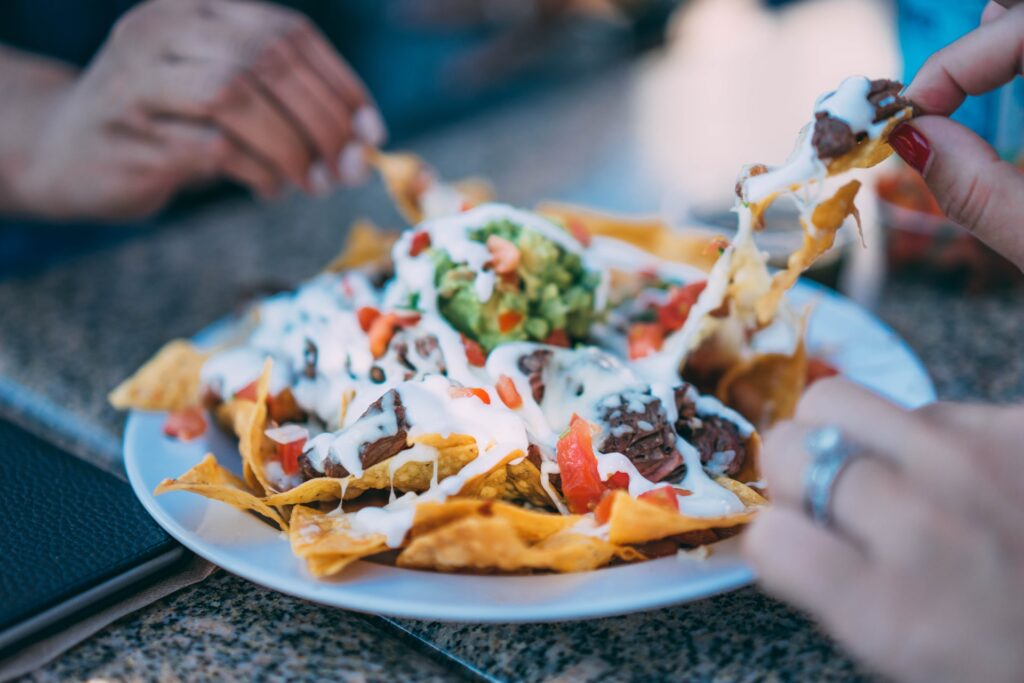“America is a country of abundance, but our food culture is sad – based on huge portions and fast food. Let’s stop with the excuses and start creating something better.”
This is according to American restaurateur David Chang, who is also a television personality, podcast show host, book author.
Chang is also the owner and founder of the Momofuku restaurant group that includes Momofuture Noodle Bar, Momofuku Sam Bar, Momofuku Milk Bar, and Momofuku Ko in New York City; Momofuku Noodle Bar and Kojin in Toronto; and Momofuku CCDC in Washington, DC.
Chang is absolutely right.
Fast food is, in many ways, the so-called “antithesis of healthy eating,” observes health enthusiasts.

Fast food tends to be fatty and unhealthy since these are processed and filled with preservatives that may not be good for you, they point out.
Experts affirm while today’s day and age coax us that it is indeed becoming important to maintain a healthy lifestyle, health-conscious individuals are also growing in numbers, promoting the option to choose healthier alternatives.
Yet, society meantime tells us that fast food is the way to go, assisting us with our cooking chores to have food on the go with our hurried and fast-paced lives.
Worldwide statistics clearly state about millions of people purchase fast food primarily because of convenience and because of its affordability compared to healthier alternatives.
It’s true that healthy meals are usually more expensive compared to their fast food counterparts.
Health experts are saying that with numerous health issues being linked with consuming too much fast food, patrons should be mindful about their calorie intake the next time they would be ordering a burger, pizza, or French fries online.
Ray Kroc, hamburger magnate and founder of McDonald’s shells out his piece of mind amidst all the fast food arguments.
“It requires a certain kind of mind to see beauty in a hamburger bun,” he jests, showing that he remains unaffected with all the talk about fast food versus healthy eating.
Other fast food patrons also observe that it’s always important to remember that eating fast food isn’t the end of the world, and that “it’s not like you’re going to get fat and die if you eat McDonald’s, yet odds are that if you eat fast food too many times, your health will suffer.”
Statista reports affirm that in the United States alone, online fast food delivery services are projected to hit 69.9 million users by year 2024.
In its 2020 report, it showed that the positive impact of the pandemic on online delivery services will push the industry to skyrocket even further, reinforcing a new paradigm in the service industry.
“These statistics reflect the possible impact of COVID-19 in the United States’ Platform-to-Consumer delivery sector, the report said.
Meantime, online food delivery service users also reached up to 419 million in China in 2020, showing the phenomenal effects of the fast food industry due to COVID-19.
Still, today’s consumers are now more educated about nutrition and health, and they want healthier options that fit into their busy lifestyles.
Mark Schatzker, an award-winning writer based in Toronto, contends that the fast-food industry has given the worldwide society its food problem, now a perennial concern for many decades.
“The food problem is a flavor problem. For half a century, we’ve been making the stuff people should eat–fruits, vegetables, whole grains, unprocessed meats–incrementally less delicious. Meanwhile, we’ve been making the food people shouldn’t eat–chips, fast food, soft drinks, crackers–taste ever more exciting. The result is exactly what you’d expect,” he says.
Apart from being a writer, Schatzker is also a radio columnist for the Canadian Broadcast Corporation (CBC), and a regular contributing writer to online news sites such as Bloomberg Pursuits, Globe and Mail, Condé Nast Traveler, among others.
He is also the author of The Dorito Effect: The Surprising New Truth About Food and Flavor and Steak: One Man’s Search for the World’s Tastiest Piece of Beef.
Health advocates, for their part, continue their call for everyone to eat healthier and have longer lives.
“The world is getting fatter and we need to do something about it. Our call for healthier food isn’t just a trending topic on social media, it’s a solution to one of the biggest problems in America today, ” they affirm.
For its part, the Partnership f Partnership for a Healthier America (PHA) is devoted to working with the private sector to ensure the health of our nation’s youth by solving the childhood obesity crisis.
As a nonpartisan, nonprofit organization that is being run by some of the nation’s most respected health and childhood obesity experts, the PHA brings leaders to “ broker meaningful commitments and develop strategies to end childhood obesity.”
“Most important, PHA ensures that commitments made are commitments kept by working with unbiased third parties to monitor and publicly report on the progress our partners are making.”
Meantime, speaking of the convenience of fast food, experts from the long-term emergency food supply business are willing and able to provide for your food supply needs, in cases wherein you are not able to order food for your family and loved ones for emergencies.
Here’s to more of America’s healthy eating habits, and a journey to better health!










